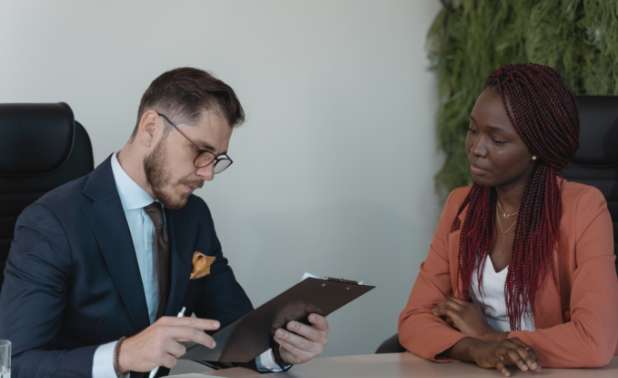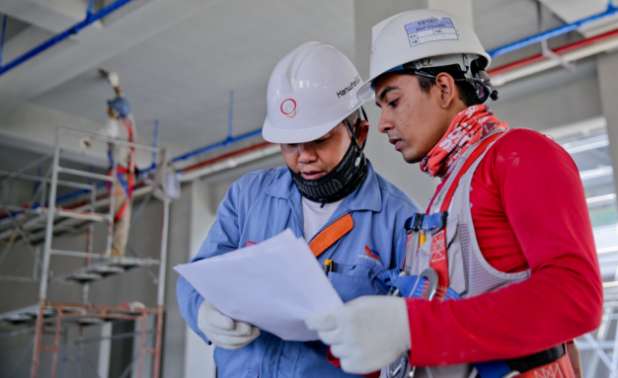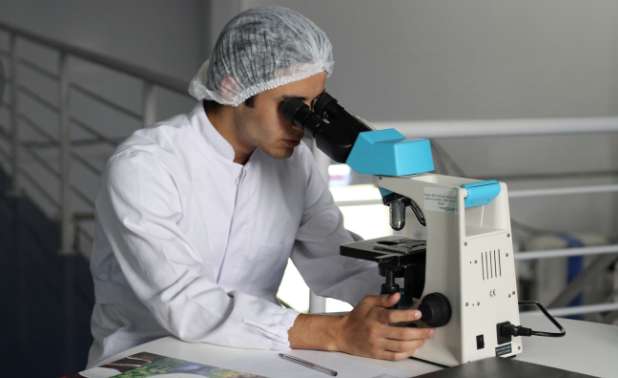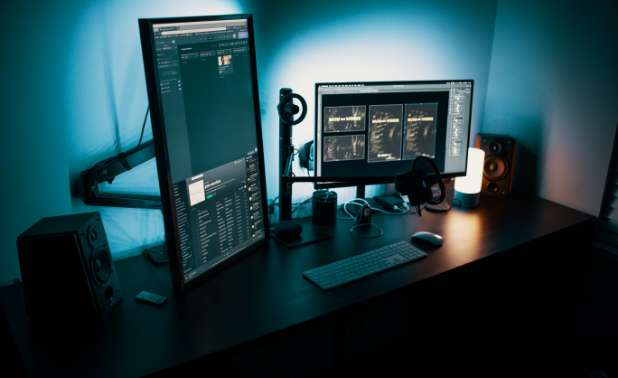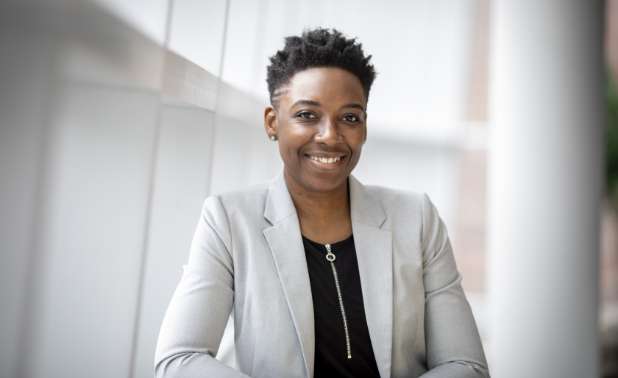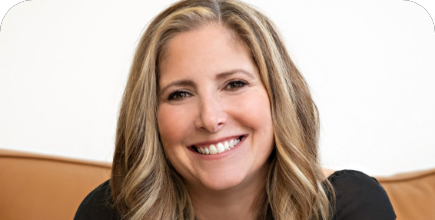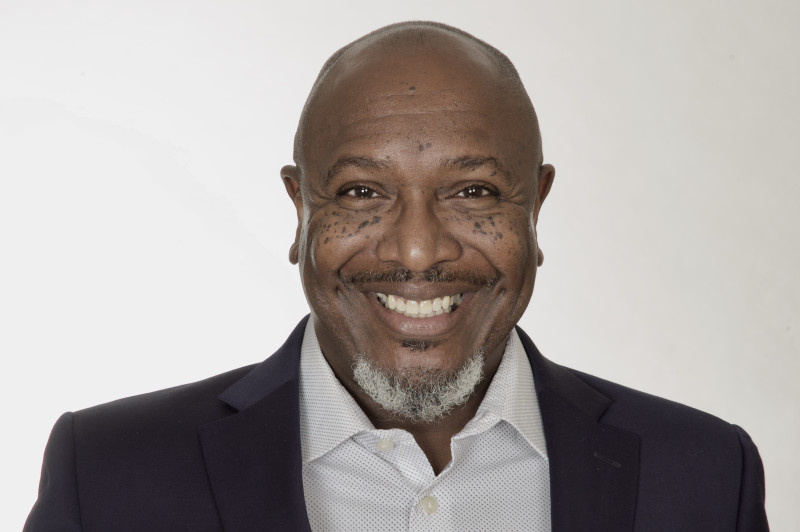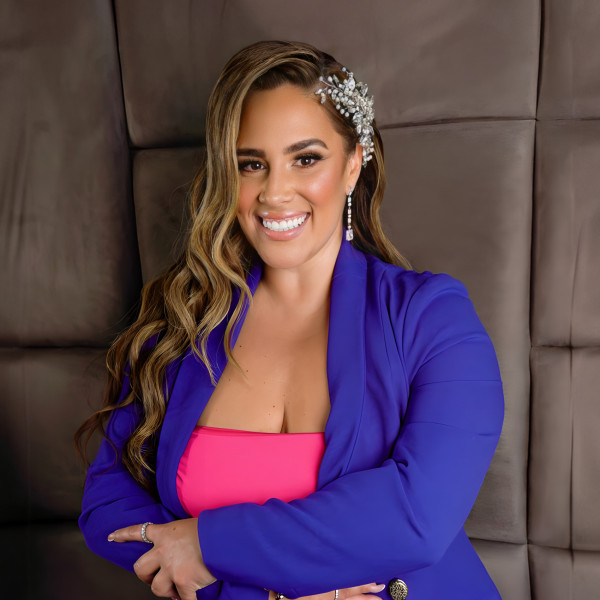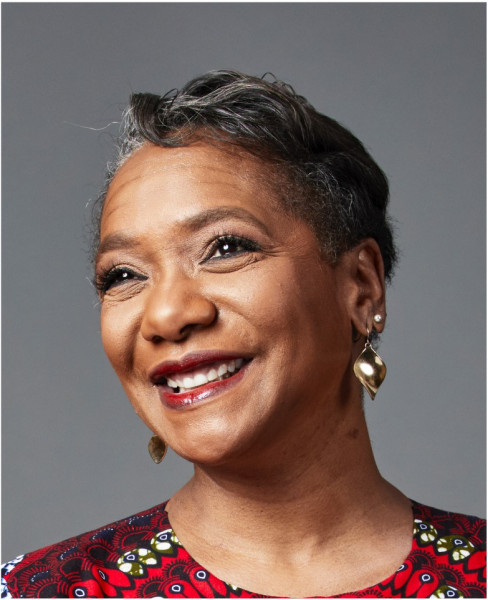Kamela Forbes:
Welcome to But First, People, a podcast on the incredible diversity of the world of work, brought to you
by Pride Global. I’m your host, Kamela Forbes. And for this upcoming Women’s History Month, I had the
pleasure of speaking with Brooke Foley, CEO of Jayne Agency. Jayne Agency is a WBENC- certified creative
consultancy, known for its expertise in brand strategy, ESG, supply chain diversity, and advocacy for women
in leadership, in diverse businesses, and Fortune 100 companies. Brooke is a 2020 Enterprising Woman of the
Year winner, a 2022 100 Women to know awardee, and a regular publisher for MBE Magazine, BUSA Magazine,
Inside Charity, and more. And, of course, not to mention, she was a Pride Global 2022 Trailblazing Woman
Award recipient. She’s also the founder of It’s Not Just Dinner, a 501(c)(3) nonprofit, dedicated to helping
diverse-owned businesses leverage certification through mentorship, education, and connections.
Today, she’s here to share info with us about how we can leverage relationships, support and empower women,
and create personal and professional brands that will take your business and careers to the next level.
Hello Brooke, and welcome to, But First, People. I’m so excited to have you here, today.
Brooke Foley
Thank you so much. I’m excited to be here.
Kamela Forbes:
I know. I’m just thinking about, as we’re getting ready to kick off Women’s History Month, to have such an
amazing guest, who’s so all about women. But before we get started, Brooke, you may or may not know that
every guest we have on the show, we ask them to sing for us. So I’m going to toss you into the fire here,
and ask you what song are you going to sing for us today?
Brooke Foley
I brought you today... I feel like I’m at school, with the sharing hour. I brought you The Duck Song. So
this is a song that kicked off digital life within my house, within my kids. We must have listened to it
thousands of times, and no one could stop singing it, and my kids will want to strangle me for doing this.
But okay, so here we go.
"A duck walked up to the lemonade stand and he said to the man running the stand, ’Hey, bum, bum, bum, got
any grapes?’ And the man said, ’No, we just sell lemonade. But it’s cold, and it’s fresh, and it’s all
homemade. Can I get you a glass?’ The duck said, ’I’ll pass.’ And then he waddled away, waddle, waddle. He
waddled away, waddle, waddle. Till the very next day, bum, bum, bum, bum, bum, ba-dum. And the man just
stopped, and he started to smile. He started to laugh, and he laughed for a while. He said, ’Come on, Duck.
Let’s walk to the store. I’ll buy you some grapes, so you don’t have to ask anymore.’ So they walked to the
store, and the man bought him some grapes, and he gave one to the duck. And the duck said, ’Hmm, no thanks.
But you know what sounds good. It would make my day. Do you think the store has any lemonade?’ And then he
waddled away, waddle, waddle. And then he waddled away, waddle, waddle."
Kamela Forbes:
Wow, I’ve never heard that before. But, what a great song. And you couldn’t pick a more fitting song, if
you claim that you can’t sing, because that wasn’t so bad, Brooke.
Brooke Foley
It had a lot of talking parts.
Kamela Forbes:
Right. And the moral of the story is?
Brooke Foley
Know your promise, stand your position.
Kamela Forbes:
There you go. And I think that’s a great fitting way for us to jump into this podcast, and talk about
women, and how we stay the course, and that’s needed for us to achieve success. So with that, I would
love to ask you, is there a woman in your life who has been a role model for you, or whom you admire? Or
maybe some historical figure, that you’d like to shed some light on?
Brooke Foley
It’s so interesting you asked that, because I have been going pretty hard and pretty fast, in terms of
trying to create spaces where women could come into their own. Because that was very, very hard for me.
And there’s a couple podcasts out there, where I talk about that, and I’m pretty open about it. And I
was open when it was happening. And I recently just got introduced to Edie Fraser. And she is one of the
women who over time I’ve kind of watched from afar, and everyone would say, "You need to meet." But
she’s doing so much to bring women, and the ways in which they’ve created spaces, together, inside of
something called the Women’s Business Collaborative. And I recently just got introduced to her, and I
was like, "Will you be my mentor?" Because she was like, "What do you want to do when you grow up?" And
I was like, "I want to be you."
Kamela Forbes:
Oh, amazing.
Brooke Foley
I really haven’t had that. I was just kind of out there for a while, on my own. And as women have
started to find each other, and demonstrate large, broad stroke impact for other women, I think there’s
starting to be a convergence of individual strengths coming together. So that was very enlightening and
powerful.
Kamela Forbes:
I think that’s such an amazing thing, that you look for a mentor to mentor you, in something that you
seem to be doing so well already. But it just speaks to the power of women supporting women, and also
never being too old to learn anything, not thinking that you know everything already, but building that
network of support around you. And I think that’s super important. You touched on mentorship, and it’s
something that I think this world just can’t move without. But to that point, last year, we honored you
as a trailblazing woman, for your efforts in supporting, and mentoring, and connecting women-owned
businesses, as well as for helping women build their personal and professional brands. With all the work
you have on your own plate, as a certified women-owned business, tell us what is it that drives your
passion for helping women in so many different capacities. In other words, what’s your why?
Brooke Foley
So I grew up inside of a family business, inside of two. And as life would’ve had it, decades ago, I was
never seen as the rightful next heir for that. There was grandsons on both sides, and I just wasn’t
going to be it. And that, combined with a father and a mother who always said to me, "Do something you
love." Well, doing something you love is amazing, until you find out you can’t do it, because there just
aren’t pathways for you. So one of my first sort of strikingly unexpected pathways was when I wanted to
go into computer science engineering, at the time, when I was transitioning from high school to college.
And that just wasn’t... The programs that I looked into, and the support structure I had, just really...
It was like a brick wall for women, at that time. You just weren’t involved.
And even though there were women involved behind the scenes, my community, my culture, my pathways were
very redirecting on that. Now, I’m grateful for the path that I have, and I’ve never looked back. But it
was that feeling tied with like, "Well, I’m not going to be the right person to lead a family business,
and I’m certainly not going to be the right person to go and follow my dad’s footsteps, in computer
science engineering," and to kind of go find my own road. And I still persevered. I still went forward.
I still found joy, and I still was very ambitious and able to do that. But because I was female, all
around me were signs and signals that I wasn’t doing what I should be doing. I should be home, I should
be having kids, I should be getting married.
And that led me into a space that really changed the direction and course of my life. And as I did have
children, and remained in the workforce, because the path everybody told me I should take didn’t work
out the way they predicted, now here I am, supporting my children and supporting myself. And the career
path was trailblazing in its own way. And at the same time, there were just barriers. There were places
and spaces that I wasn’t invited into, or couldn’t go into, or didn’t have the voice I was entitled to,
if I was male. And so I had that voice anyway, so I was seen as a rebel, or difficult, or a lot to
manage. I think one of the comments I got in one of my reviews was that I could drive people to break
the glass.
Kamela Forbes:
Yeah, break the glass ceiling.
Brooke Foley
Right, exactly. I’ll break glass. Let’s sit down and talk about what glass I’m going to break, before I
break it. But it was really hard. And as I built out Jayne, one of the ways that we redirected the
company was inside the small business space. And we really saw that there was an absolute inequity
across all diversity, when it came to understanding how to have voice as a female, within your own
business, within your own community, culture, to be able to have the success that you are rightfully on
a path for. If you take the origin story, and you tie to where someone is now, the compelling momentum
gets clipped for someone. And that’s a shame, for all of us. So, that’s where my passion comes from. I
don’t ever want to tolerate somebody else having to have those barriers. And I know that I can’t stop
them all, but if we could just change one woman’s trajectory, she can change another five.
Kamela Forbes:
And that’s the power of each one, teach one.
Brooke Foley
Yes.
Kamela Forbes:
Well, to that point, I think that’s one of the great things about certification. You’re a certified WBE.
While I’m using that jargon, can you tell us what that means, and what’s the process of getting
certified?
Brooke Foley
Certification means that an organization that’s representing the actual qualifications that the
government sees as valid, match. And it’s actually... It’s a seemingly simple thing, but if you’re a
woman-owned business, or a minority-owned business, or a veteran-owned business, or differently abled,
the ability to qualify and demonstrate that you do have those, I call them advantages... Everybody else
refers to them oftentimes as disadvantaged businesses. But I think that they are the gifts that drive us
to the greater heights.
Kamela Forbes:
Oh, I love that perspective.
Brooke Foley
Yeah. That qualification is very technical, and it’s not subjective, it’s objective. And the process of
being certified is you providing the documentation, and then a representative from that certifying body,
coming back and saying, "Yes, this is qualified for the certification." And then, the certification
itself enables the "disadvantaged," but I call them advantaged, businesses to have different set asides
inside of government and privately owned contracts.
Kamela Forbes:
Great. Okay. So you say, "Okay, I’m a woman. I own this business, or I own 51% of this business. I’m
going to apply, get certified." That’s great. But then, why would I want to do that? What are some of
the benefits of getting that certification?
Brooke Foley
So you get this, the certification, and you’re like, "Well, what do I do with it, now?" So you can go
out, and you can pitch things, and you can get involved in... You can get on some lists for government
agencies, and you can find your way. But there’s also conferences and events, that you and I both go to,
and we love those. But the passion or the why for me, which I’ve seen you, and Pride Global, and some
other really phenomenal businesses support, is really teaching what do you really do with that
certification, now? And it’s an aspect of using that certification, and that focus, to find common
interests with other like-minded businesses. And they might not be in your industry, and they may not be
even in your traditional realm, but you’re able to find like-minded business owners, and people who
think about give back the same way, that are raising their children the same way, that might live in the
same area as you.
And now, you’re building relationships with people, based on an element of authenticity. And now, you’re
able to help each other’s businesses. It’s not so much that, "I’m going to give you a contract." But
it’s that, "I know you. I know what’s healthy for you. I understand your position. I understand your
promise. So now, I can introduce you to someone that’s going to be healthy for you, and you’re going to
be healthy for them." So it actually really stabilizes networking, in a very healthy way. So, one of the
ways that we talk about leveraging certification is knowing who your community is going to be.
The other one is getting involved in areas and spaces of mentorship, that’s put aside for the
certification. And then, the third is opportunity. So the ability to connect with and build a dialogue
with someone who might be overseeing a contract, or an opportunity that you want. But there isn’t one
silver bullet. It’s kind of like a silver buckshot situation. You want to participate in the community,
you want to take advantage of the mentorship, you want to find your authentic story, you want to own
your origin story, and what it is that got you to where you are, so you can really defend your position
you promised. And you want to do that same introduction, with the same kind of consciousness for the
others that you’re meeting, as well.
Kamela Forbes:
I love that. And the good thing about that, Brooke, is that there’s so many companies now that have
supply diversity programs. Obviously, all of the major Fortune 500 companies have had them for years,
and have world-class programs. But there are smaller companies now that are starting programs, as well.
I know we started ours about a year and a half ago, when I joined, and I’m so happy that we do a lot of
work to try to encourage others, other medium-sized firms, to get started on their journey, as well.
Because that’s really what it’s going to take for all of us to kind of hold hands, bring each other
along on this journey, and give those opportunity to the women-owned or other advantaged businesses, as
you like to refer to them as. So, that’s wonderful.
And the thing that I love to say at any... of my speaking engagements with this message. And that
message is, when we achieve success, we should always send the elevator back down. And you’re a great
example of someone who does just that. You’ve started a nonprofit, It’s Not Just Dinner, with several
other WBEs, so tell us a little more about that.
Brooke Foley
I think this is also a great way of highlighting your personal brand and commitment to supplier
diversity. Five of us got together, over a period of time, and determined that part of what was painful
for us was being able to leverage certification. We didn’t know how, we didn’t know who, we didn’t know
where, we didn’t know what. And it wasn’t that the certifying bodies weren’t doing what they needed to
be doing. It was that it was on each of us to figure out, how do we bring business in, using the
certification? That is the trueness of leverage. So, it’s not on WBENC to help me figure out how to
bring the right business into my company. WBENC’s value is creating these spaces where I can go and find
that business, but it’s my job to be able to curate it.
So the five of us, we didn’t really map ideally to the conference, traditional floor
gala notion. So from a social standpoint, we liked having dinner with each other. We were a mix of
introverts and extroverts. But at the end of the day, we really enjoyed growing each other, and having
some deeper conversations. So we were doing that at dinner, and our clients were joining us, and we were
introducing people. And we were seeing that our clients were doing business with each other. And we saw
that WBEs were doing business with WBEs, and MBEs were getting involved. And now, we had a mix of
diverse certification happening. And it started to be that we would do these dinners, just quietly off
to the side, at every conference, and it was really joyous. And then, the pandemic hit. And we went from
dining just 15 of us to, at one point, I think and you were involved in this too, we had somewhere
around 120 people that were going to be coming to a dinner.
And what we had learned over time was that, in order to create an environment where we all five still
felt comfortable, we would sit and talk to the WBEs before they entered the room. And we had this no
cell allowed component, which took so much pressure off of everyone. And we would say to the WBEs and
the MBEs that were coming into that room, "Just watch the seasoned and WBEs and MBEs, and watch how they
communicate, and interact, and network. And you’ll see that the cell isn’t necessary, when you’re in the
right environment, and you are prepared the right way." And we would watch, and somewhere around the
second or third course, all the time, you would start to hear someone say, "I know there’s no cell
allowed, but do you mind if I ask you about this, because I think I might have an opportunity for you."
And that’s when authentic networking is really taking root.
So what we saw was it was really lifting people up, and we saw some really intense contracts come out.
And we didn’t want to be moving in on the certification bodies’ responsibilities. We didn’t want to be
tracking the contract rates, and things like that. But what we did want to do was demonstrate impact. So
we created a 501(c)(3), and we created the It’s Not Just Dinner Scholarship Fund, for first time
conference attendees, and first time certification fees. And you were an awesome part of that. And it
really accelerated during the pandemic, when we had to go virtual, and we would see somewhere between 80
to 100 people show up on these video calls. And for some people, it was a real lifeline, and they
started to realize the relationships that came out of that were lasting. They were real.
So this notion of creating, whether it’s virtual or in real life, these safe spaces for people to
relate, and connect, and unwind, and rejuvenate was very, very valuable. The act of creating the
scholarship fund had an impact, which we completely did not anticipate... The financial value of the
scholarship is great. But we’re finding is we’re seeing the RPOs really reach out and refer people to
us, more for the trade show prep, and the trade show floor mentorship, and the ability to get someone
from, "I’ve never been to the conference," into It’s Not Just Dinner, where they walk out, and they have
somewhere between 30 to 50 contacts, they’re able to go on the trade show floor, and they’re ready.
They’re not wondering or wandering. They know where they’re going. So, that’s the premise behind the
501(c)(3).
Kamela Forbes:
I love everything that you just said, and that’s what makes me so proud to be an advisory board member
to the It’s Not Just Dinner organization. You touch on such great, key points. You don’t have to
physically sell. There’s nothing worse than somebody trying to grab a drink at a cocktail event, and
somebody coming up with a pitch deck. You’re just like, "Now is not the time." People do business with
people they love, they like to work with. So if you just take that moment to get to know somebody on a
personal level, the business will follow. And I love, that’s what It’s Not Just Dinner is all about, and
helps to guide people along that vein, to help them get to the end point, without doing things the wrong
way along the journey.
So, really impactful work that you and the other co-founders are doing, and bringing myself and several
other amazing board members on, to help us all achieve the end goal of MEDIC, which is mentorship,
education, diversity, inclusion and certification. So it’s such a great focus, and I know all of the
women that have gone through the program already that have won scholarships, have benefited tremendously
for it. And thanks to you, for being one of the women that spearheaded that.
So not only are you spearheading, It’s Not Just Dinner, but you’re spearheading Jayne Agency, an amazing
agency that’s all about helping businesses achieve dependable, repeatable, and scalable revenue. Now,
Brooke, I’m not asking you to give away your secret sauce here, but maybe you could just give us one
tiny little takeaway that you could share with our listeners, about how they can achieve this goal.
Brooke Foley
The beauty of what we have built at Jayne Agency... And I say we, because it really isn’t only me. The
team is phenomenal. I feel so blessed all the time, and I’m grateful that they still let me work there
sometimes. But there’s nothing secret sauce about it. It’s actually... We’ve really shared it out with
the world, and we’re very open about it. And the place where it dovetails in with It’s Not Just Dinner
so well, is that our primary focus is really just re-grounding businesses, products, people, families,
individuals with their worth. So when you think about the origin story, the place in which the value of
what the company provides started, that is the inherent basis of the brand. So when you dig back into
that, and you’re able to say, "Oh, this is what that origin, this is where it started. This is what it’s
about," you can fundamentally see that in the business, today. And the ability to start talking about
that, and use that to reground yourself, is typically where we see some of the most powerful
positionings happening.
So the methodology, we’ve put that out into the world. It’s the digging in and peeling away the onion,
and creating the alignment that is oftentimes where people will come to Jayne and say, "Look, I’ve tried
the DIY part of it. We’re ready to engage. We want you to take us and the team through it." Or, we just
did a phenomenal one the other day. I’m still kind of glowing from it, where it was a solepreneur
moment. She has a company, and she has a bunch of people that work with her, but she chose to do it on
her own. And as she just cracked through each of the 10 assets, her world started to make sense, in
terms of what she always knew things to be. And the clarity that she had at the end, you could see... We
weren’t even done with the platform, and you could see she was changing the way she was approaching
business development, who she recruited, how she went to market, her messaging. She even changed... We
watched her change this, even talking to us. In the call, she started using language appropriately, and
refining it.
So that ability to go through, and crack to that origin story. If there’s one thing you want to try and
do on your own, it would be to really dig into that origin of what was the first time something really
meant something to you? And then, the brand itself just builds forward.
Kamela Forbes:
Oh, I love that. It’s really just a key part, right there. It’s all about storytelling. You find your
authenticity, and you share that story, and it definitely connects with your customers and clients. So
that’s why you’re the branding expert, Brooke. What advice would you give to our female listeners on how
to build their personal brand?
Brooke Foley
Professional brand and personal brand are distinct. They’re different. And a lot of times, what happens
is we build, especially in minority and women-owned businesses, we’re building them both at the same
time. And there comes a point where one is pulling harder or pushing harder on the other. And if we’re
aware of it, we can start to build them separately.
But you’ll see often that women-owned, minority-owned businesses will... There’s a throughput between
what the origin story of the CEO is, and to the end promise, the one that is of value, not commodity,
but of value to her, individually. And that’s a lot of the work that we do. And I think that’s why we do
so much work with minority-owned businesses that are female oriented, because the ability to create a
confidence and to empower someone around their own origin story, without bias, without discrimination,
without diversion, without muddling it, but owning it in its full on full force, and unleashing it,
which is a large part of what we work really hard on with our brand owners. That is one of the most
fueling and healthy things that I’ve ever gotten to be a part of. Getting to the point of why it wasn’t
unleashed, or why it was suppressed is really the dark underbelly of the supplier diversity and the
diverse overall tension that we see out in the world, today.
Kamela Forbes:
While that’s true, like you said, for somebody that owns a business, and having their personal and
professional brand distinct, what about just any woman? Any professional woman, or whatever you’re doing
in your life, there’s still an opportunity for you to build your own personal brand, correct?
Brooke Foley
And the beauty of that is whether you’re in career ascension, or you’re in ownership of a company, the
act of building the personal brand is the same. And it’s ironically the same thing as building a company
brand. It’s the same 10 assets. What you do with it, and how you think about it, and how you leverage it
is a little different. And when we work with people inside of the personal brand space, there’s two
routes they can go. It’s either pushing career ascension and company growth, or they’re pushing out for
celebrity, which is typically what we’ll see when someone’s ready to leave a company that they’ve been
working for over time, and have built an area of expertise. Or, it’s when somebody is pushing celebrity
branding, because they’re going to be separating out from the company, or allowing the company to grow
in a direction that they might fuel from a different perspective.
So that process, it’s the same 10 assets. It’s goals, barriers, objectives, strategies, audience,
insight, position, promise, tone, and personality. We’re all personal brands. When you break that down,
and you take the background, and you push that through all of those assets, is when you’re starting to
develop the personal brand. But the personal brand itself is actually made up of two different
components. It’s hard power and soft power. And hard power... And soft power is different than soft
skills. And I want to be very careful about that, because there’s a lot of debates about soft skills.
But hard power is granted to you, whereas soft power is something you earn, and you have accomplished.
So hard power is like, "This is your title, this is your role, this is your responsibility, your salary.
You get this parking spot, this package. Or, you don’t."
And then soft power is your integrity, the ethics, your personal vision, mission and values, and how you
deliver on that, and the integrity in which you operate. It’s your inclusiveness versus your
exclusiveness. It’s all those things that build up, whether or not people will lead willingly, follow
willingly with you, versus not. And there’s nothing an HR department can do to say that that could or
couldn’t happen. So, those are more in the soft power spaces. So sometimes the personal brand really
starts to hone in on and highlight some of the accomplishments that get underplayed, especially in the
minority women-owned space. Especially in minority women-owned career ascension, what we find is that
there’s really deep, rich accomplishment there, that doesn’t get elevated or embraced. And when we start
to highlight it and allow it to shine, you start to see that that’s where the careers really start to
have momentum, and catapult.
Kamela Forbes:
Wow. Well, I love that. I love that hard power and soft power. And clearly, you have a lot of the soft
power. Because based on the impact you’ve made over the years, working at several creative agencies, and
helping women bring, build hundreds of brands, and not just women. But then building your own brand, and
now you’re sending that elevator back down, to help other women and minority owned companies build
theirs. So Brooke, my last question to you is, what do you want your legacy to be?
Brooke Foley
I want to change the way women think about creating impact, overall. There’s so much more we can do. And
I’m going to take a second to touch on a topic that may not be so comfortable for everyone. But as you
look out on what’s happening in social, and you pay attention to what’s happening in the news, there’s
these pendulum swings happening. And what we’re seeing is that diversity and inclusion having tension
with supplier diversity, or we’re seeing that men versus women, or Black women versus white women. And
at the end of the day, it is all about accelerating the best, for the good of the whole. And what
happens, in my observation, in the hours and hours of research that we’ve done inside of women and
minority-owned and men-owned businesses, is that there’s a very large inequity, in terms of being able
to empower and unleash, at the beginning of women owning their business, especially in the minority
space.
So when you take all of these tensions that are going on, if we just allowed people to come into, and
encouraged and provided... So one of the things that has really been weighing on me, and I don’t have a
solution for it, is that there really isn’t a good moment in time where anyone succeeds by excluding
anyone. So it’s how do we filter in all the good, and make sure that the good people are able to have
access to the good knowledge, the good opportunity, the good mojo?
And I’m hesitant about what I’m about to say, but it isn’t about excluding men. There are men who have
huge contribution to the success of very powerful women, and I myself have been poured into by both
really wonderful men and really wonderful women. And I have been held back by really awful men and
really awful women. And I would say that it’s a 50/50. It hasn’t been like one was worse than the other.
But what I had to learn was to tease the unhealthy people, regardless of gender or race, anything, out
of my realm, and make sure that I nurtured the ones that were healthy.
So I watch a lot of the discourse going on right now, and it’s almost like it’s leading us to places
where a different kind of hurt is about to happen. And my fear is that the hurt is going to happen to
the good people. They’re still in need of that equitable space. And if we’re off, distracted by
conversations that are now just in another place that’s unhealthy, we’re still not feeding that space of
opportunity for people. And it’s hard for me to watch some of the fantastic opportunities that I know
women could benefit from, being excommunicated, because of gender.
Kamela Forbes:
Well, Brooke, you said you don’t have a solution. But I say you don’t have a solution, yet. I know the
work you do, and the impact you make, and the way you give back to women and your community, there’ll be
a solution coming, and that will be a legacy. And I can’t wait to be a part of that journey with you,
and watch it unfold. So thank you so much for being our guest here, today. I applaud you for all of the
work that you do to support, motivate, advocate, sponsor women. And you’re definitely one of my role
models, and somebody that I would love to celebrate this Women’s History Month.
Brooke Foley
Well, I am mutual and kind, so let’s do that together. Wait, I think we’re going to.
Kamela Forbes:
We sure will. Thank you so much, Brooke.
Thanks again, Brooke, for coming on air with me today. And thanks to all of you for tuning in. To learn
more about Pride Global, please check out our website, at prideglobal.com. If you have any questions for
Brooke or me, please email us, at butfirstpeople@prideglobal.com. And of course, don’t forget to like,
share, rate, and subscribe to our podcast. Thanks again for listening, and we’ll see you on the next
one.


